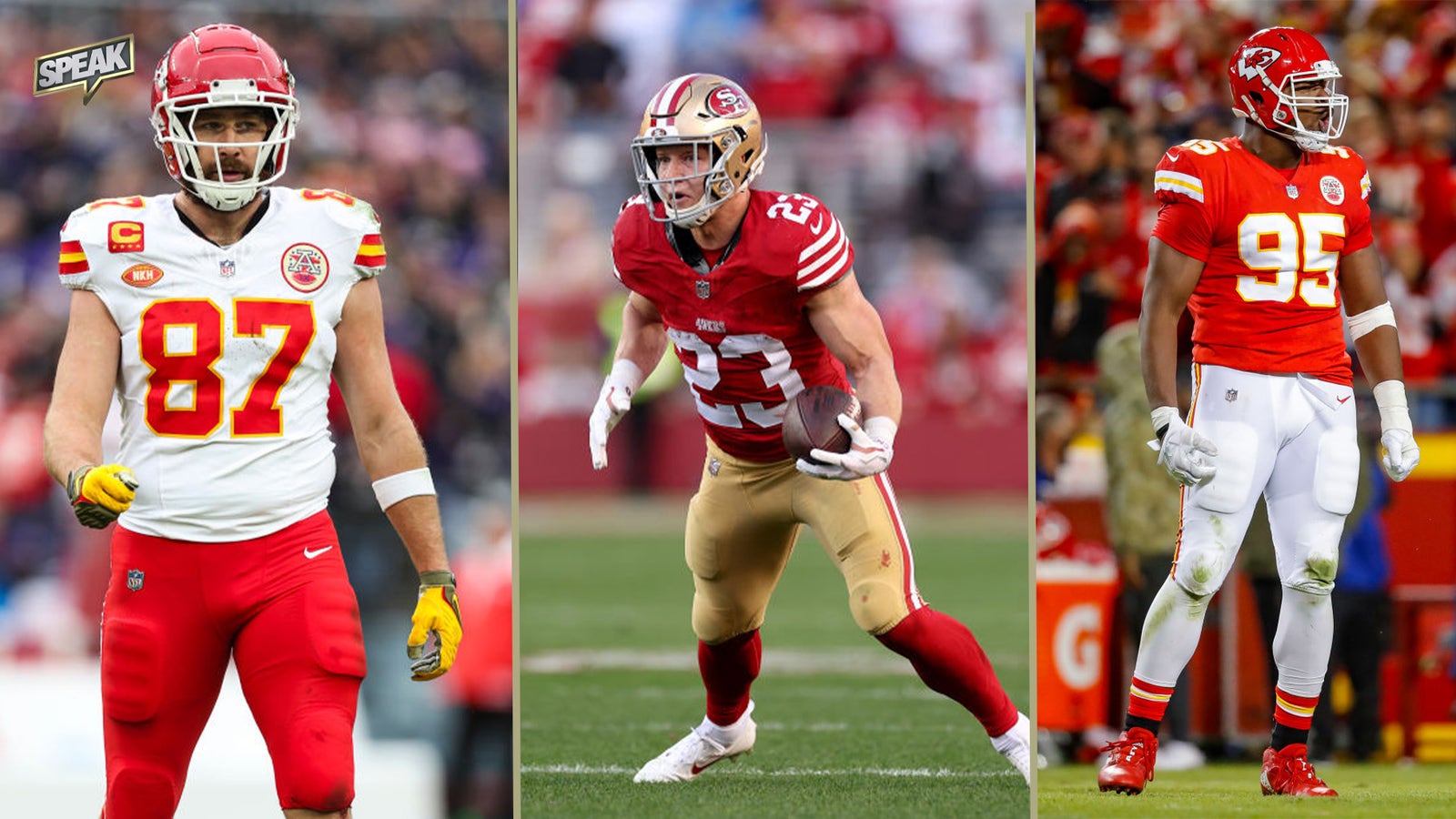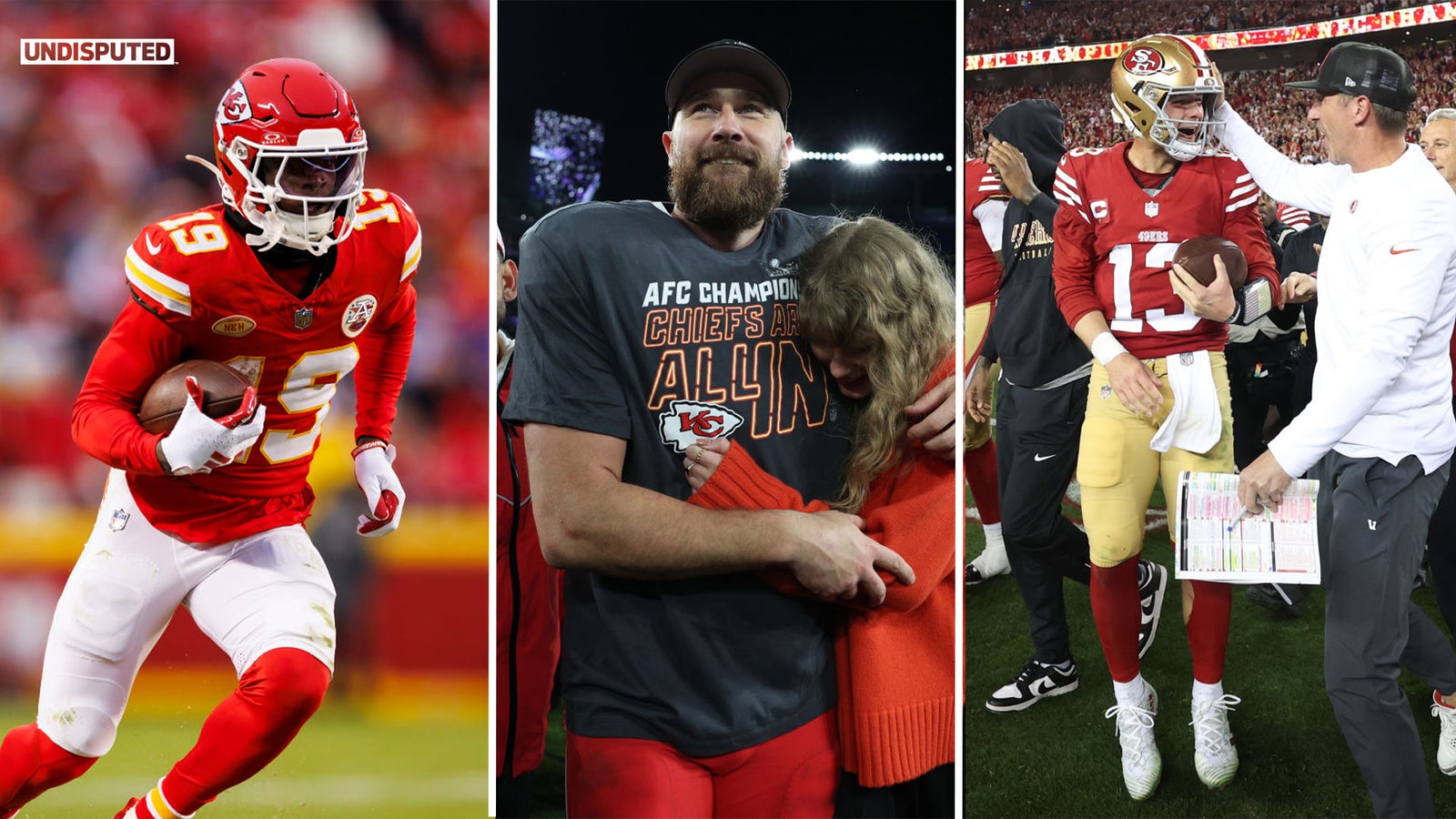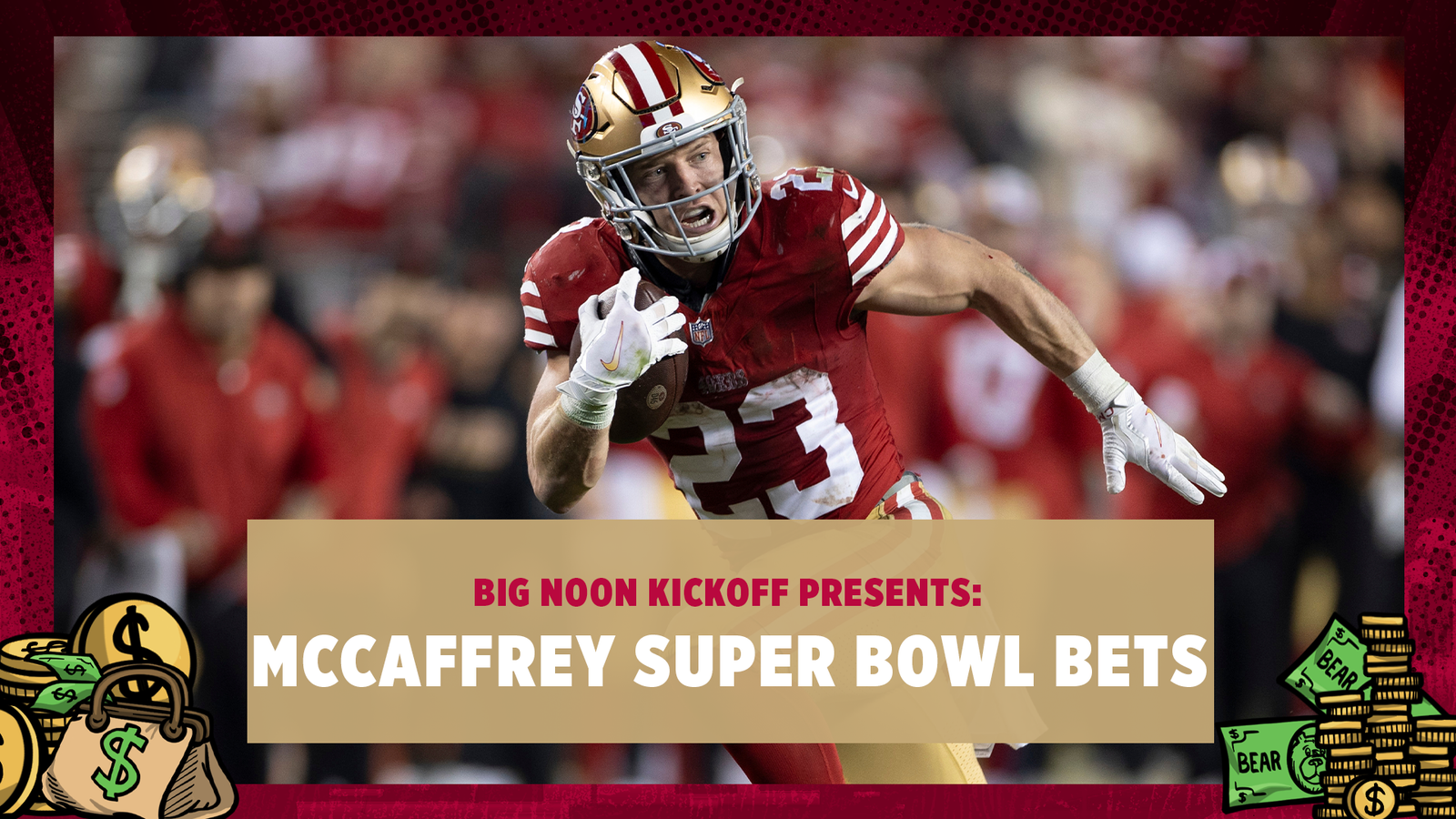HENDERSON, Nev. — The best player on the San Francisco 49ers, the one that makes their offense go, plays a position that the NFL is desperately trying to devalue. Nobody wants to pay running backs what they think they’re worth anymore.
Except for the San Francisco 49ers. And they were only willing to pay one specific player.
They understand that Christian McCaffrey is the exception to the rule.
“It’s hard to find guys like Christian that can provide that value,” said 49ers fullback Kyle Juszczyk on Tuesday at the Hilton Lake Las Vegas Resort & Spa, the team’s hotel for Super Bowl LVIII. “You need a guy that can play outside of the backfield. Yes, whatever position you’re listed as you’ve got to be pretty good at that. But then where you really take it to the next level is being able to play other positions at a high level as well.”
In other words, what makes the 27-year-old McCaffrey worth everything the 49ers gave up to get him 16 months ago, not to mention the millions they’ve paid him since, is that the 5-foot-11, 210-pounder is not just a running back. He can line up as a receiver or a tight end. He can run the ball or stay in and block.
He is a weapon who has proven he can do it all.
“I really think he’s the best football player I’ve ever seen,” Juszczyk added. “I’m convinced that if he played wide receiver he would be an all-pro wide receiver. He sees the field like a quarterback. He understands the game very well. He runs between the tackles, he runs outside the tackles, he can break tackles, he can outrun people, he’s great in pass protection, he runs routes, he blocks for other people.
“You can’t ask him to do anything else. I mean, he’s thrown touchdowns. He’s incredible.”
That’s why McCaffrey is not the argument that proves that NFL running backs deserve a lot more money than they currently are getting, because there really aren’t any NFL running backs that are quite like him.
During this past season, McCaffrey was a monster. He led the NFL with 1,459 rushing yards, led all running backs with an average of 5.4 yards per carry and was second among running backs with 14 rushing touchdowns. He was also third among running backs with 67 catches and second among running backs with 567 receiving yards, and first among them with seven receiving touchdowns.
That continued the torrid pace he was on last season after his October trade from the Carolina Panthers, when he rushed for 746 yards and six touchdowns, and caught 52 passes for 464 yards and four touchdowns in just 10 games in San Francisco. He almost immediately became the linchpin of Kyle Shanahan’s offense.
Which is ironic, because the trade — the 49ers sent a second-, third- and fourth-round pick to Carolina for McCaffrey and a fifth-round pick — was one Shanahan initially didn’t want to make.
“He thought it was a lot to give up for a running back,” 49ers CEO Jed York said in a rare press conference last week. “I think John (Lynch, the 49ers general manager) and I thought it was just the right amount to give up for Christian. And I remember that very vividly where it’s like, ‘Look, it’s not a pass rusher, it’s not a quarterback, but it’s a good player. But do we want to give up that much?” And collectively it was, ‘Do you want him to go to L.A.? This is where we are.'”
Skip Bayless, Richard Sherman and Keyshawn Johnson share their takeaways from Super Bowl LVIII Opening Night
What is most incredible about that is that Shanahan’s offense is one of the most run-based systems left in the pass-happy NFL. If any coach would seem to value a talented running back, it figured to be him. He explained his offensive philosophy this week by saying, “it’s hard to win consistently in this league if you can’t run the ball. No matter how good of a passing game you have, no matter how good of a defense, it doesn’t matter. We love being able to stick with the run game so you make people defend it. Then everything gets a little bit easier.”
Yet even Shanahan understood why teams would be reluctant to invest heavily in that injury-laded position, when they would get more value by spending salary cap space on quarterbacks, offensive linemen, or even defensive players. He knew he didn’t need an All-Pro running back to power his attack. After all, he was coming off a season in which he guided the 49ers to the NFC Championship game behind the budget backfield of rookie Elijah Mitchell and veteran Jeff Wilson. Two years earlier, they reached the Super Bowl with the three-headed running back committee of Raheem Mostert, Matt Brieda and Tevin Coleman.
And now his bosses wanted to give up three draft picks to deal for a running back who had been healthy enough to play in just 16 games over the 2 ½ seasons since Carolina signed him to a record four-year, $64 million contract extension in 2020?
“As somebody that plays poker a little bit, you don’t go all in on 6-Jack offsuit, right?” York said. “When you have a pair of Jacks or Ace-King, you might not win the hand, but that’s the time that you want to push your chips into the middle.
“And I feel like that’s where we were with Christian. And we did give up a lot. But I think we have one of the best, if not the best player in the National Football League on our team.”
McCaffrey is still owed $12 million-plus in each of the next two seasons, with salary cap numbers each year over $14 million. That’s a range most running backs nowadays can only dream about. Last offseason, Saquon Barkley, Tony Pollard and Josh Jacobs — three of the NFL’s best — had expiring contracts, but their teams each gave them the $10.1 million franchise tag instead rather than signing them long term. Barkley came close to a deal with the Giants, but rejected short-term offers worth between $11-13 million because they wouldn’t guarantee more than $23 million over the life of the deal — far less than the $30.5 million the Panthers guaranteed McCaffrey three years earlier.
Of course, the Panthers never got their money’s worth. McCaffrey played just three games in 2020 thanks to a high ankle sprain and a shoulder injury. Then hamstring and ankle injuries limited to seven games the following year.
It was a reminder to everyone what a huge financial risk it was to invest in a position where players so frequently get hurt.
What made the risk worth it for the 49ers was both where they were as a team — with a powerful offensive line and seemingly on the verge of another Super Bowl — and the way Shanahan planned to use McCaffrey. He viewed his running backs as versatile weapons who could be dangerous from anywhere on the field.
“He’s why our pass game and our play-action pass and all that kind of stuff opened up,” 49ers quarterback Brock Purdy said “Because he sort of sets the standard with the run game and then when we do pass the ball, he’s there in our play. He catches the ball, he makes guys miss, he can go up against safeties and linebackers and make them miss and stuff in the pass game. And then he scores touchdowns. His stats are crazy.”
“To be able to experience it first-hand and see all that we put on his plate and see how he goes out and executes it on game day,” Juszczyk added, “it’s one of the most impressive things I’ve seen professionally.”
The fact that Shanahan is willing to ask McCaffrey to do so much, and how effortlessly McCaffrey seems to do it all well, is why he was worth all those picks to the 49ers and the $12 million or so per year they’re paying him. He’s an MVP-caliber player, even though a running back hasn’t actually won the award since 2012. He’s a Swiss Army knife — an all-purpose weapon who has proven to be equally dangerous from anywhere in the offensive formation.
That’s why he’s an anomaly among running backs, not a fiscal trendsetter. Not all of them are that versatile. And none of them are as good at all of those things as McCaffrey has been. That’s why he’s the one that’s worth the price the 49ers are paying.
And the reality for the other running backs is that they just won’t get paid until they prove they’re as good and as valuable as him.
Ralph Vacchiano is the NFC East reporter for FOX Sports, covering the Washington Commanders, Philadelphia Eagles and New York Giants. He spent the previous six years covering the Giants and Jets for SNY TV in New York, and before that, 16 years covering the Giants and the NFL for the New York Daily News. Follow him Twitter at @RalphVacchiano.

Get more from National Football League Follow your favorites to get information about games, news and more



